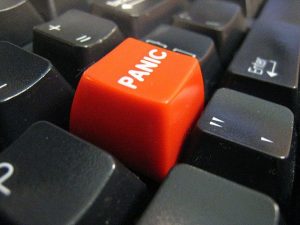Is Margaret Chan Really to Blame for the Delayed Ebola Response?
Sara Gorman (@saragorm) discusses recent criticism of WHO Director-General Margaret Chan and whether the focus should be on failures in preparation rather than response.
A January 6 article in the New York Times suggested that WHO Director-General Margaret Chan’s response to the Ebola crisis was woefully inadequate. The article notes that it took 1,000 Ebola deaths in Africa and the spread of the disease to Nigeria for the Chan to proclaim a global emergency. Citing criticisms of Chan’s response to the SARS epidemic as a public health administrator in Hong Kong, the article accuses the current WHO head of conceding too heavily to local governments. The article claims that she relied too heavily on African regional offices to manage the response when her agency should have stepped in more aggressively earlier. But the history of public responses to infectious disease announcements, as well as tragically underfunded global disease surveillance systems, suggest that, while Chan may not have done everything she could, the story is much more complex than it seems.

Sounding the alarm bell on an infectious disease threat and taking extreme measures such as quarantine and travel bans is not without risk. American history is littered with examples of harmful infectious disease panic. More often than not, American responses to infectious disease threats tend to tap into embedded racial tensions. We only need to look at vicious attacks on African boys at a Bronx, NY school in October, to the sounds of the nickname “Ebola,” to understand that these dynamics are still very much at play. Chan herself certainly knows the harms of acting perhaps too quickly in response to what seems like a global infectious disease crisis. In 2009, Chan was harshly criticized for supposedly “overreacting” to the H1N1 threat.

Part of the problem is that our understanding of how regular people respond to risk is not entirely clear. Although we have a good theoretical understanding of the tenets of risk perception from the classic psychological work of scholars such as Paul Slovic, our understanding of how risk communication in contemporary health crises affects people’s decisions and emotions is not well-developed. People can react in surprising, emotional, and counterintuitive ways to images and information about diseases, and research has shown health risk communication can even have the opposite of the intended effect. So while Chan may have reacted too slowly and relied too heavily on over-burdened local governments, we must remember that if we want our public health officials to feel comfortable responding to infectious disease threats in situations involving limited information and unpredictable outbreak patterns, we must develop a much firmer understanding of what drives public hysteria surrounding infectious disease and how to quell the panic.
The Times article touches on one hugely important issue that gets overwhelmed in the article’s haste to place all the blame on Chan: the inadequacy of our current global public health surveillance systems. Surveillance systems in developed countries are often sufficiently robust, which is part of the reason why a case of Ebola in the U.S. is extremely different from a case of Ebola in Liberia. A case of Ebola in the U.S. will be rapidly identified and reported to authorities. Protocol will immediately kick in and complete isolation of the suspected case will begin almost instantaneously. In Liberia, a country with a poorly developed public health surveillance system, a case of Ebola may not be well-recorded, the information may not get to the appropriate authorities in a timely fashion, and advanced protocols might not exist to ensure the complete and rapid isolation of the sick individual.
Part of the problem here is a global culture that focuses on crisis and not prevention. Surveillance systems need to be built up in times of relative calm. Funding for surveillance systems, which can be significant, needs to appeal to people’s sense that they are preventing the next epidemic, not to their need to help a languishing, dying child in a moment of intense crisis. By the time the child is dying of Ebola, or flu, or malaria, or any other infectious disease, it is usually already too late, and the cost of helping the situation can be much more than investing in the proper public health infrastructure in times of relative calm.
As the Ebola crisis continues to fall out of the media spotlight, and even as the epidemic still rages in West Africa, we need to act immediately to maintain the momentum produced by this frightening epidemic not to point fingers at specific health officials but to figure out what went wrong on a more fundamental level. While Margaret Chan may in many ways be partly to blame, putting her at the center of the problem is not only misguided but also a waste of time and energy. We must recognize that if we are to improve the response to future epidemics, we have to do most of the work outside of times of crisis. Because once the index case of a major new epidemic is reported, it is already too late.

[…] Sara Gorman (@saragorm) discusses recent criticism of WHO Director-General Margaret Chan and whether the focus should be on failures in preparation rather than response. A January 6 article in the New York Times suggested that WHO Director-General Margaret Chan’s response to the … Continue reading » […]